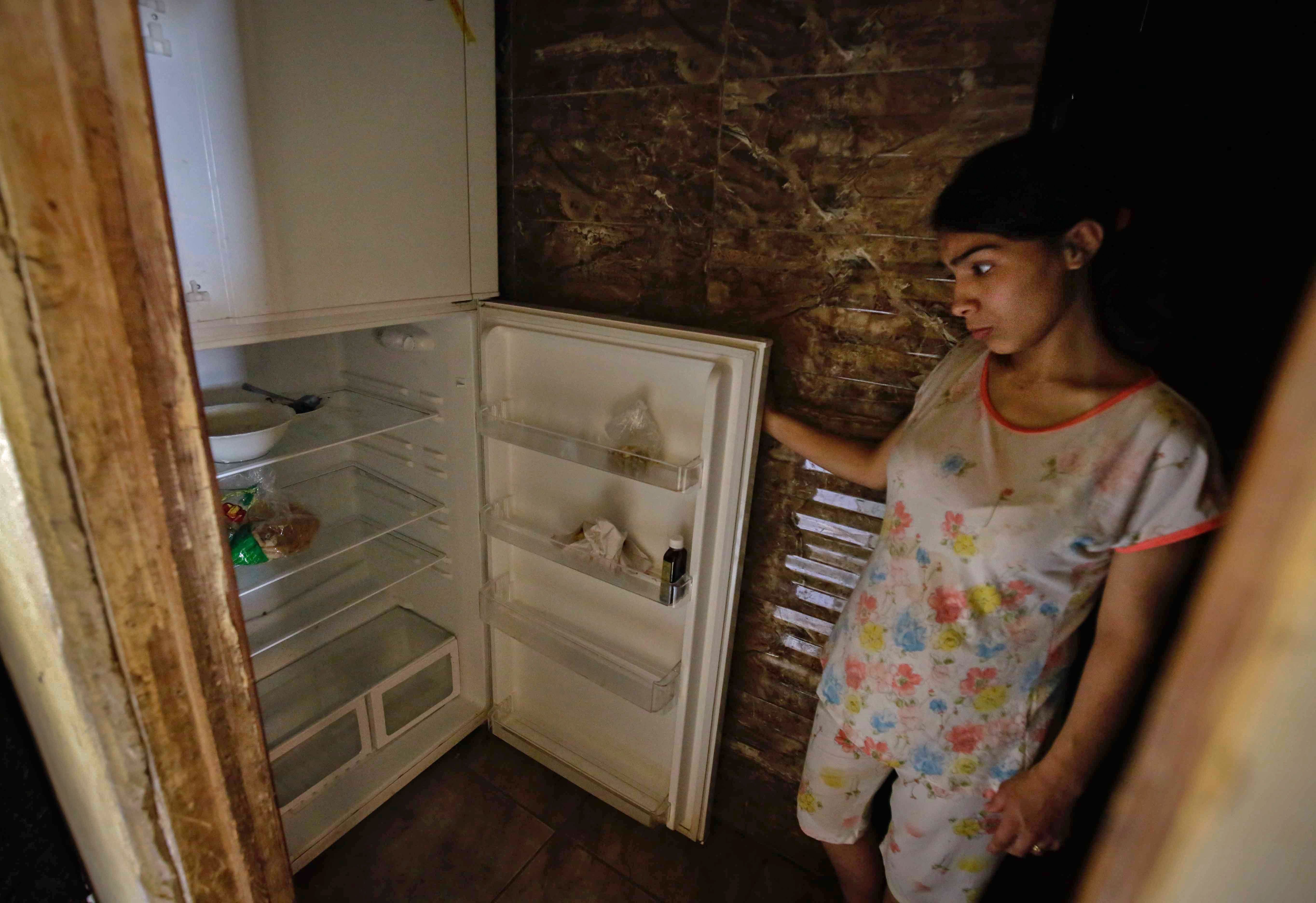As foreign reserves are drained, a bitter and worrying winter lies ahead for Lebanon
It is hard to see how the poorest will be able to eat and keep themselves warm, writes Bel Trew


As we hurtle into autumn, families across Lebanon are bracing for an unfathomably bleak winter, where many will starve and struggle to warm themselves.
Battered by financial collapse, an uncontrolled outbreak of Covid-19, one of the largest non-nuclear explosions in modern history, and sectarian violence, the tiny Mediterranean nation has barely dragged itself forward this year. More than half the country now lives below the poverty line, a rate which is rising. In Beirut, many are still living in the bombed-out shells of their homes.
But there is a new disaster on the horizon that will only tighten the noose: subsidy cuts.
When that happens, the cost of food and many medicines, as well as electricity, internet and fuel, will quadruple or quintuple, according to experts.
It will spark a dash for the dollar, depreciating the local currency even more, possibly triggering hyperinflation but certainly sending costs soaring even more.
It is hard to see how the poorest will be able to eat and keep themselves warm.
The problem is Lebanon’s foreign reserves are drying up at an alarming pace, with the bank believed to have less than $18bn (£14bn), having lost $2bn since April.
Lebanon is in the grip of an unprecedented financial crisis anchored in decades of mismanagement and corruption.
This has seen the local currency lose more than 70 per cent of its value. At the same time, the country has been forced to use its foreign assets to support imports of essentials such as fuel, wheat, medicine, food, as well as services including electricity and the internet.
In August, the country’s central bank governor warned that the government will, by law, have to stop funding subsidies if the reserves reach $17.5bn.
If Lebanon continues at the same rate, it may reach that point before the end of the year, just as the winter bites.
Omar Tamo, a foreign currency expert in Lebanon, paints a grim picture if subsidies are cut.
By his calculations, a monthly electricity bill for lower-income homes will soar to 425,000 Lebanese lira (LL) or around $280 on the official exchange rate, more than half a month’s salary of those on the minimum wage.
Internet and basic mobile-phone bills will cost around the same.
A standard loaf of bread will cost the equivalent of over $7. A packet of Panadol – paracetamol – will cost almost $13. It will hit many imported foods like chicken, beef and oil, and medical supplies and services: according to Tamo, a single MRI scan will cost three months’ salary of those on the minimum wage.
As a foreigner, I am shielded from most of this by access to foreign currency. But Tamo calculated my own monthly bills to highlight the impending disaster: my internet bill will soar to LL850,000 or $560 on the official exchange rate, while my monthly generator costs, which cover the massive holes in Lebanon’s patchy electricity supply, will reach LL1.27m or $850.
These figures are based on the lira’s black-market value staying where it is right now at around LL8500 to the dollar – though, as demand for foreign currency surges, it won’t. It is impossible to predict exactly what will happen but Tamo says there is a risk that the Lebanese currency may drop to as low as 17,500 to the dollar, even though officially it is still pegged at LL1,500. If that’s the case, my internet bill could be as high as LL1.75m or a staggering $1166 a month on the official exchange rate.
“The bottom line is families won’t be able to cope during the winter. It will be cold; they will need fuel and electricity, but the cost of this will go up four or five times. And that’s if they can even find fuel, or there is electricity,” said Tamo.
“We are already facing fuel shortages now before subsidies have been hit. Meanwhile [Lebanon’s electricity utility company] needs $1bn to import fuel. Where will they get this money from?” he added.
The government has floated a “coupon” system for the poorest as a kind of safety net, but there are few details on this plan which, at the moment, does not seem likely.
Although the international community pledged millions of dollars in aid after the 4 August blast – which killed and wounded thousands of people and caused an estimated $10bn of damage in the capital – delivery of that financial support is contingent on much-needed reforms which haven’t happened.
Instead, the country is stuck in a political deadlock.
The entire cabinet stepped down in the aftermath of the August explosion. A new prime minister was chosen but resigned before he was even sworn in. The political parties appear unable to agree on a new government.
Caught in the crossfire are the people, who are powerless to stop the train wreck.
“Every month that passes by, we are losing more and more foreign reserves; the losses are harder to recuperate,” Tamo said with desperation.
“We need reforms now. Not tomorrow: now. What are they waiting for?”




Join our commenting forum
Join thought-provoking conversations, follow other Independent readers and see their replies
Comments